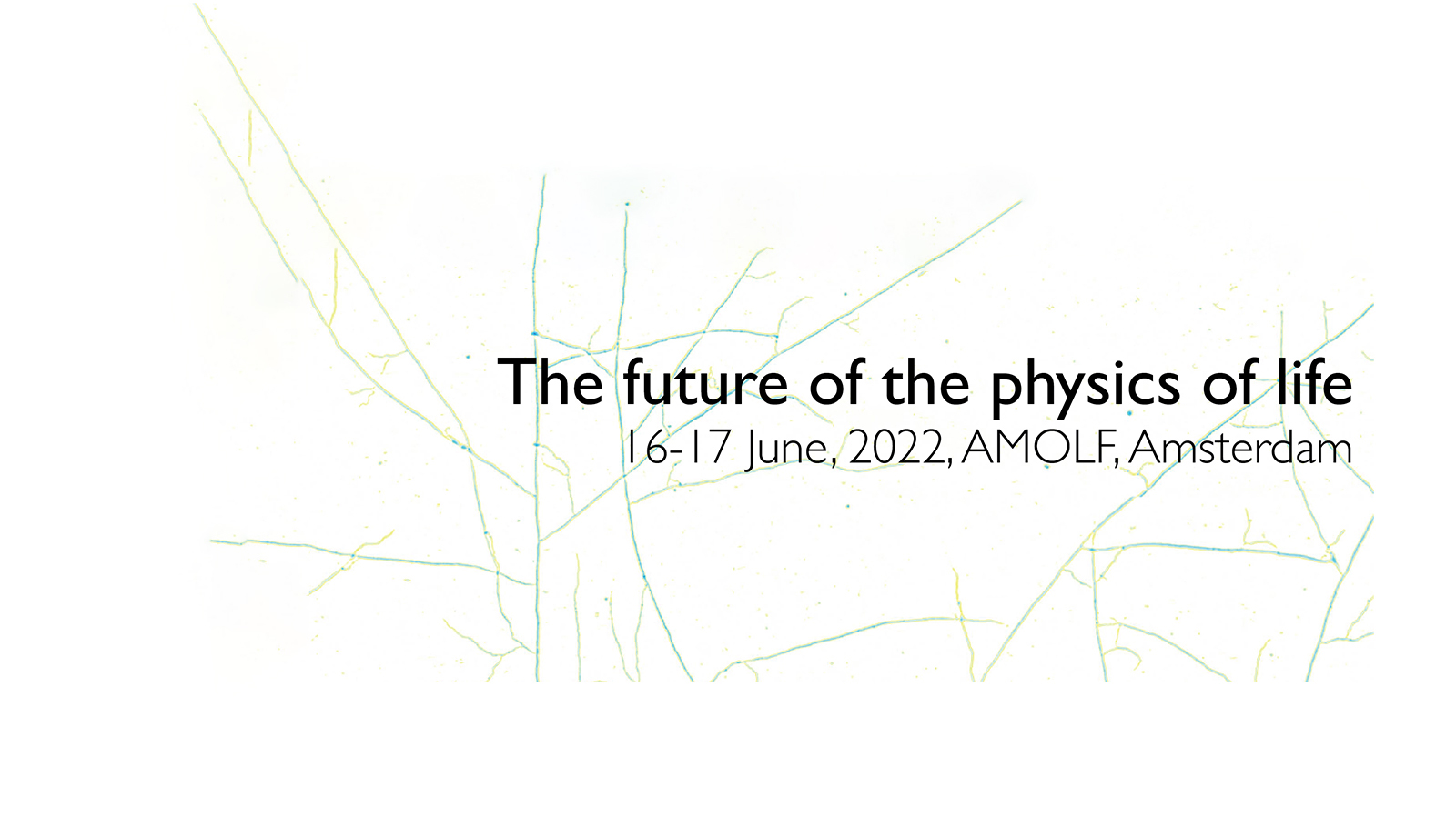
Program 16-17 June The Future of the Physics of Life Workshop
Preliminary program
Thursday, June 16
08.30 Registration desk opens (Congress Centre, Science Park 125)
09.00 – 09.15 Opening remarks
Session Coarse-grained versus molecular modelling
09.15-10.00 Terry Hwa (UCSD): The biological basis of coarse-graining — a case study
10.00-10.30 Coffee Break
10.30-11.50 Christoph Zechner (MPI-Dresden): Constraining cellular noise through phase coexistence
11:15-12.00 Massimo Vergassola (ENS, Paris): Navigation of complex natural environments
12.00-14.00 Lunch and postersession I See list of posters
Session Concept-driven versus data-driven modelling
14.00-14.45 Aaron Dinner (University of Chicago): Combining experiments and modeling to understand sensitivity and robustness of a circadian clock
14.45-15.30 Thierry Emonet (Yale University): Discovery of a motion detector in the olfactory system using data-driven and concept-driven approaches
15.30-16.00 Tea break
16.00-18.00 Poster session II and drinks See list of posters
18.00-19.00 Transport to dinner location
19.00-21:00 Conference dinner at West-Indisch Huis
After dinner talk
21:00-21.45 Bill Bialek (Princeton): Ambitions for theory
Friday, June 17
08.30 Registration desk opens (Congress Centre, Science Park 125)
09.00-09.15 Opening remarks
Session Multicellular systems
09.15-10.00 Arup Chakraborty (MIT): The convergence of mechanistic modeling, learning algorithms, and experimental and clinical studies in immunology
10.00-10.30 Coffee break
10.30-11.15 Toby Kiers (VU University Amsterdam): Tracking flows and topology in fungal trade networks
11.15-12.00 Karen Alim (Technical University of Munich/MPI Goettingen): Fluid flows shaping life
12.00-13.00 Lunch
Session Multicellular systems
13.00-13.45 Katharina Sonnen (Hubrecht lab): Signalling oscillations in embryonic development and adult
tissue homeostasis
13.45-14.30 Jeroen van Zon (AMOLF): All cells, all the time – tracking the biophysics of development
using organoids
14.30-15.00 Tea break
Session Optimality
15.00-15.45 Gasper Tkacik (IST, Vienna): First-principles derivation of a biological network
15.45-16.30 Aleksandra Walczak (ENS, Paris): Learning from mice and birds: active (?) matter and collective (?) behaviour
Discussion on coarse-grained modelling, data-driven modelling and optimality
16.30-17.15 Discussion
17.15-17.30 Closing remarks